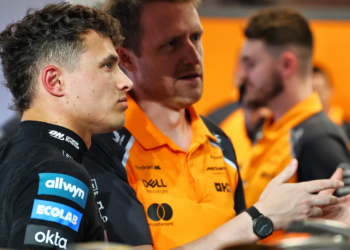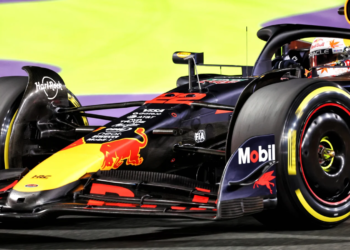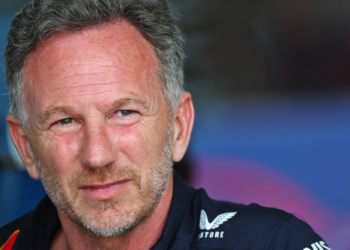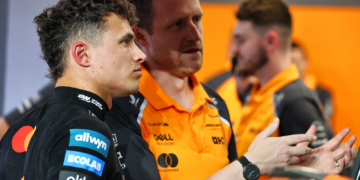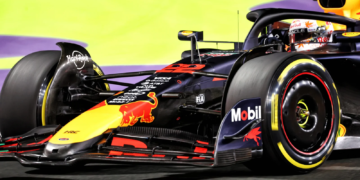Max Verstappen admitted that politics aren’t his “expertise” when he was probed on the topic of sportswashing claims against Gulf countries hosting Formula 1.
Sportswashing is the term used when countries with a reported poor human rights record use sports events and promotions in a bid to clear up their public image to the wider world.
For example, Qatar and Saudi Arabia’s recent additions to the F1 calendar are examples of nations where homosexuality remains illegal and in the case of Saudi, women were only granted legal access to drive on public roads in 2018.
With F1’s presence in these nations starting in 2021 and set to last well into the next decade, Verstappen was asked post-race last week in Jeddah to give his take on sportswashing allegations.
“I think with sport in general, I think there are a lot of things that you can achieve everywhere in the world,” Verstappen said.
“Being competitive and performing here and showing to a new young crowd what we’re doing.
“Of course, we are not into politics. That’s a whole different story. And I think also it’s very important that sport is sport, politics are politics.
“Sometimes people like to be in the middle of it. I prefer to just focus on sport. Otherwise, I would have been a politician. But that’s not my expertise and definitely not where I want to end up as well.
“At the end of the day, every single country has their own flaws, but also positive sides.

“We are not going to change the world at the end of the day as a sport, but we try to share positive values.
“It’s also up to the country to make positive changes.
“I do think that since we have been here [Saudi Arabia] already there have been some really nice positive changes and you have to respect that and sometimes you know it takes a bit longer in some countries.
“I think it’s very positive and it’s great to see and also great to meet a new culture as well for everyone to get educated on that as well, because everyone is a little bit different around the world wherever you go, and you have to respect that.
“But then, of course, also, wherever you’re from, your country, there are always things that can be done better, so it’s a work in progress in general.”
Ferrari’s Charles Leclerc added that it is F1’s role “to bring the values of the sport,” to certain countries in order to “open minds,” but implied how the series itself isn’t a perfect example when it comes to issues of a political nature.
F1 is under scrutiny of late regarding fairness and inclusivity amid the fallout from an investigation into Chrisitan Horner’s alleged behaviour toward a female colleague.
The allegations were dismissed following the findings from an independent King’s Counsel, but a lack of transparency still lingers like a cloud over Red Bull and F1 as a whole.
“Obviously we are in a very tricky moment for our sport,” admitted Leclerc.
“We should focus on sharing the good values and there’s a lot of work still for us to do on that, as we are seeing at the moment.”
Regardless of how F1 as a whole is perceived in the present moment, Leclerc credited the attitude of the sport’s drivers in promoting a positive message.
“But I will stay on the line that I believe that we are 20 drivers showing good values and we need to keep going to those countries in order to hopefully open minds and for them to have a better future and also to inspire young people in order to follow their dream,” he said.
“I still believe that this is a good thing anyway.”




